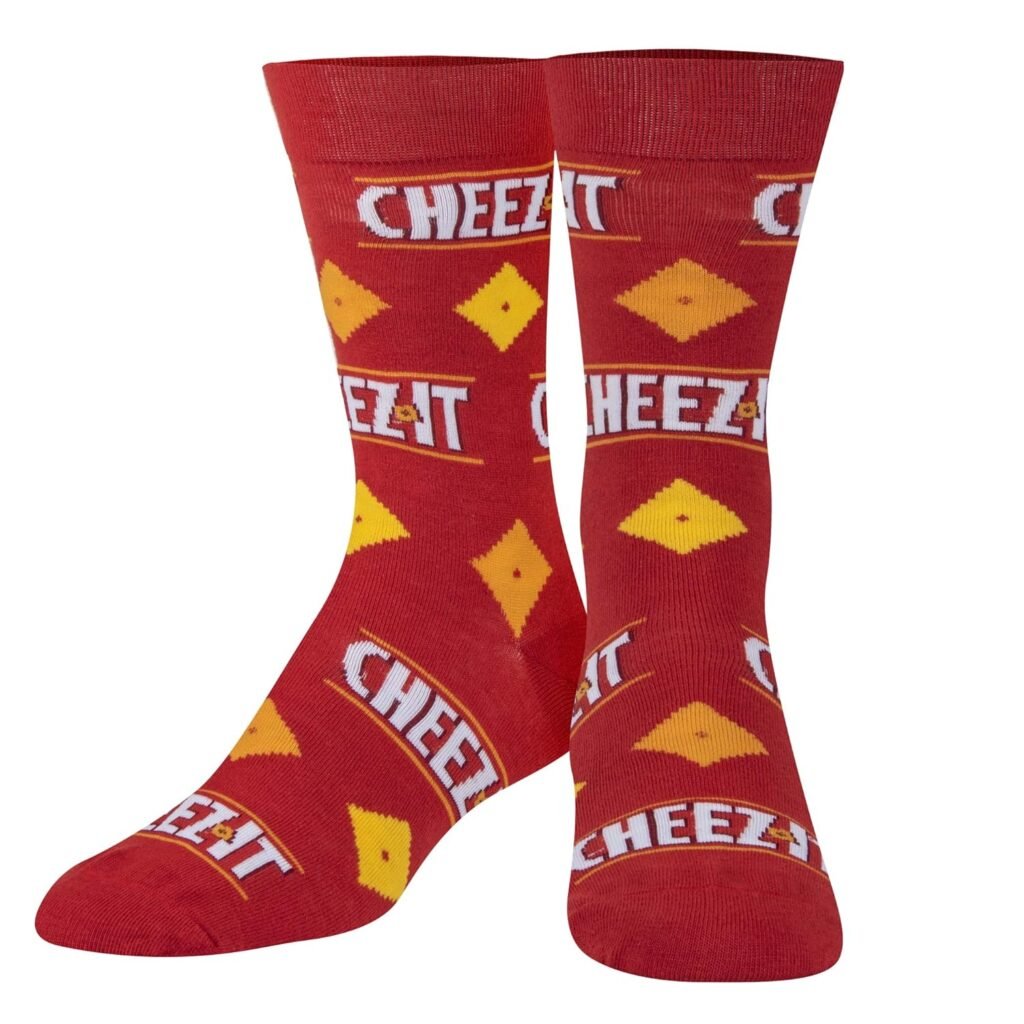Are you ready to embark on a journey into the captivating world of luxury fashion brands? From iconic fashion houses to avant-garde designers, this article will take you on a whirlwind tour, showcasing the unparalleled craftsmanship, innovation, and opulence that define these mythical labels. Brace yourself as we unravel the exquisite fabrics, intricate designs, and fascinating histories that make luxury fashion the epitome of style and sophistication. Whether you’re a connoisseur or simply fascinated by the allure of high-end fashion, this exploration will leave you mesmerized by the artistry and allure of these esteemed brands.
Find more products like these on Amazon!
History of Luxury Fashion Brands
Evolution of luxury fashion brands
The history of luxury fashion brands dates back several centuries, with roots in the aristocratic societies of Europe. In the 17th and 18th centuries, luxury fashion brands began to emerge, catering to the elite class who desired exclusivity and high-quality craftsmanship. These early luxury fashion houses paved the way for the development of the industry as we know it today.
Pioneering brands in the luxury fashion industry
Several brands played a significant role in the establishment and growth of the luxury fashion industry. One such brand is Louis Vuitton, which was founded in 1854 and became renowned for its high-quality luggage and accessories. Another pioneering brand is Chanel, founded by Coco Chanel in 1909. Chanel’s innovative designs and timeless elegance revolutionized women’s fashion.
Impact of luxury fashion brands on fashion trends
Luxury fashion brands have had a profound impact on fashion trends throughout history. These brands often set the standards for beauty, style, and craftsmanship, influencing the designs and aesthetics that define an era. From iconic creations like Christian Dior’s “New Look” in the 1950s to the avant-garde designs of Alexander McQueen, luxury fashion brands have shaped the way we see and experience fashion.
Defining Luxury in Fashion
The concept of luxury in fashion
Luxury in fashion is more than just a price tag; it encompasses elements such as exclusivity, craftsmanship, and heritage. A truly luxurious fashion piece is meticulously crafted using the finest materials and showcases exceptional attention to detail. Luxury fashion encapsulates the notion of owning something extraordinary and unique.
Characteristics of luxury fashion brands
Luxury fashion brands share several common characteristics. They prioritize quality over quantity, ensuring that each piece is carefully made and built to last. These brands also emphasize exclusivity, often producing limited quantities of their products to maintain a sense of scarcity and desirability. Additionally, luxury fashion brands invest heavily in branding and storytelling, creating a sense of allure and aspiration around their products.
Luxury fashion vs. fast fashion
Luxury fashion stands in stark contrast to fast fashion, which emphasizes speed and affordability over quality and exclusivity. While fast fashion brands cater to the masses with quickly produced and inexpensive garments, luxury fashion brands offer a more elevated experience, targeting a niche market of discerning individuals seeking craftsmanship and exclusivity. Luxury fashion focuses on timeless designs, whereas fast fashion follows quickly changing trends.

This image is property of images.unsplash.com.
Find more products like these on Amazon!
Popular Luxury Fashion Brands
Iconic luxury fashion brands
There are several iconic luxury fashion brands that have become synonymous with luxury and style. Brands like Gucci, Prada, and Hermès have achieved global recognition for their exceptional craftsmanship, innovative designs, and unwavering commitment to luxury. These brands continually push boundaries and set new trends, solidifying their status as icons in the fashion industry.
Emerging luxury fashion brands
While established luxury fashion brands dominate the industry, there is also an emergence of new and exciting brands that challenge traditional notions of luxury. These brands often incorporate innovative and sustainable practices, appealing to a new generation of conscious consumers. Examples of emerging luxury fashion brands include Stella McCartney, Off-White, and Vetements, which have gained popularity for their fresh perspectives and unique designs.
Global reach of luxury fashion brands
Luxury fashion brands have a global presence, with flagship stores and boutiques in major cities around the world. These brands cater to a diverse clientele, serving as symbols of prestige and status in various cultures. Whether it’s the grandeur of Fifth Avenue in New York City or the elegance of the Champs-Élysées in Paris, luxury fashion brands have established a worldwide presence that transcends borders.
Luxury Fashion Showcases
International fashion weeks and luxury brands
International fashion weeks serve as platforms for luxury fashion brands to showcase their latest collections to a global audience. Events such as Paris Fashion Week, Milan Fashion Week, and New York Fashion Week attract top designers, influencers, and industry professionals. Luxury fashion brands seize the opportunity to create memorable runway shows that captivate the fashion world and set the trends for the upcoming seasons.
High-profile runway presentations by luxury fashion brands
Luxury fashion brands spare no expense in creating elaborate and immersive runway presentations. These shows are not just about displaying the garments; they are theatrical experiences that transport the audience into the designer’s world. From extravagant sets and captivating music to skilled models showcasing the collections, luxury fashion shows are spectacles of creativity and artistry.
Significance of fashion shows for luxury brands
Fashion shows are critical for luxury brands as they serve multiple purposes. Firstly, they generate excitement and anticipation for the brand’s upcoming collection, creating a buzz within the industry and among consumers. Secondly, fashion shows allow luxury brands to reinforce their image and brand identity through carefully curated presentations. Lastly, fashion shows provide a platform for luxury brands to establish connections with buyers and media, ultimately driving sales and increasing brand visibility.

This image is property of images.unsplash.com.
Collaborations and Partnerships in Luxury Fashion
Luxury fashion brands partnering with designers and artists
Collaborations between luxury fashion brands and designers or artists have become increasingly common. These collaborations bring together diverse creative talents, resulting in unique and sought-after collections. Examples of successful collaborations include Louis Vuitton partnering with renowned artist Jeff Koons and Balmain collaborating with high-street brand H&M. These partnerships allow luxury fashion brands to tap into new markets and reach a wider audience.
Celebrity endorsements and brand partnerships
Celebrity endorsements have long been a strategy employed by luxury fashion brands to enhance their brand image and reach a larger audience. When a well-known celebrity or influencer is spotted wearing a luxury fashion brand, it instantly elevates the brand’s status and generates buzz. Additionally, luxury fashion brands often forge partnerships with celebrities for exclusive capsule collections, leveraging their star power to attract fans and consumers.
Impact of collaborations on luxury brand positioning
Collaborations and partnerships have a significant impact on luxury brand positioning. By teaming up with designers, artists, or celebrities, luxury fashion brands can tap into new customer segments and expand their brand appeal. Collaborations create excitement and exclusivity, positioning the brand as innovative and forward-thinking. They also generate media coverage, raising brand awareness and increasing desirability among consumers.
Luxury Fashion Brand Marketing and Advertising
Luxury fashion brand advertisements
Luxury fashion brand advertisements are carefully crafted to evoke a sense of aspiration and desire. These advertisements often feature beautiful models, stunning locations, and an air of sophistication. Luxury brands prioritize quality over quantity when it comes to advertising, ensuring that each campaign is a visually captivating representation of their brand identity and aesthetic.
Strategies for marketing luxury fashion brands
Marketing luxury fashion brands involves a combination of traditional and innovative strategies. Luxury brands invest in editorial placements, leveraging renowned fashion magazines to showcase their collections and tell their brand story. They also utilize exclusive events and fashion shows to create buzz and generate media coverage. In recent years, luxury fashion brands have embraced social media, using platforms like Instagram to engage with their audience and create a sense of exclusivity.
Digital marketing in the luxury fashion industry
The rise of digital marketing has presented new opportunities and challenges for the luxury fashion industry. Luxury brands now have the ability to reach a global audience through online platforms, but they must also maintain their aura of exclusivity. Digital marketing strategies for luxury fashion brands often involve creating immersive online experiences, leveraging influencers, and utilizing e-commerce platforms to offer personalized and convenient shopping experiences.

This image is property of images.unsplash.com.
Sustainability and Ethical Practices in Luxury Fashion
Efforts towards sustainability by luxury fashion brands
In recent years, luxury fashion brands have increasingly focused on sustainability and ethical practices. These brands are making efforts to reduce their environmental impact by implementing sustainable sourcing and production methods. Many luxury fashion brands are also investing in initiatives to support local communities and artisans, ensuring fair wages and working conditions throughout their supply chains.
Transparency and ethical practices in the industry
Transparency has become a key aspect of ethical practices in the luxury fashion industry. Brands are now expected to disclose information on their supply chain, manufacturing processes, and environmental impact. By being transparent, luxury fashion brands can build trust with consumers and demonstrate their commitment to sustainable and ethical practices.
Consumer demand for sustainable luxury fashion
Consumer demand for sustainable luxury fashion is on the rise. Today’s consumers are more conscious of the environmental and social impact of their purchases, and luxury fashion brands are responding to this demand. By offering sustainable options, luxury brands can attract a new segment of consumers who value both style and ethical responsibility. This shift in consumer behavior is pushing the industry towards more sustainable practices and innovation.
The Influence of Luxury Fashion Brands in Pop Culture
Celebrity and influencer culture with luxury brands
Luxury fashion brands play a significant role in celebrity and influencer culture. Celebrities and influencers are often seen wearing and endorsing luxury fashion brands, solidifying their status as symbols of wealth and style. The association between luxury fashion brands and high-profile individuals creates a sense of aspiration and desire among consumers, driving demand for these exclusive products.
Impact of luxury fashion brands on music and film industry
Luxury fashion brands have a close relationship with the music and film industry. Brands often collaborate with musicians, actors, and directors to create visually stunning campaigns and projects. By aligning themselves with the entertainment industry, luxury fashion brands can reach a wider audience and tap into the glamour and allure associated with the world of music and film.
Luxury fashion in popular reality TV shows
The influence of luxury fashion brands is evident in popular reality TV shows centered around fashion and lifestyle. Shows such as “The Real Housewives” and “Keeping Up with the Kardashians” prominently feature luxury fashion brands, showcasing their products and the luxurious lifestyle associated with them. These shows create a desire among viewers to own and experience the luxury brands showcased, further driving demand and brand recognition.
Luxury Fashion Brand Flagship Stores
Iconic flagship stores of luxury fashion brands
Flagship stores are the physical embodiments of luxury fashion brands, offering a unique and immersive retail experience. These stores often serve as architectural landmarks and symbols of prestige. Examples of iconic flagship stores include the Louis Vuitton Maison in Paris, the Gucci Garden in Florence, and the Prada Epicenter in Tokyo. These flagship stores showcase the brand’s heritage, craftsmanship, and brand identity.
Unique retail experiences offered by luxury brand stores
Luxury brand stores go beyond traditional shopping experiences by providing unique and memorable moments for their customers. From personalized fittings to exclusive events and VIP services, luxury stores aim to create an unforgettable journey for shoppers. The ambiance, interior design, and customer service of luxury brand stores are meticulously crafted to reflect the brand’s values and to enhance the overall luxury experience.
The role of flagship stores in brand positioning
Flagship stores play a crucial role in brand positioning for luxury fashion brands. These physical spaces act as tangible expressions of the brand’s identity, serving as focal points for brand storytelling and engagement. Flagship stores allow luxury fashion brands to establish a direct connection with customers and provide an opportunity to showcase the brand’s history, craftsmanship, and innovation. A well-designed flagship store elevates the brand’s image and reinforces its status as a leader in the industry.
Future Trends in Luxury Fashion
Innovations and advancements in luxury fashion
As technology continues to advance, luxury fashion brands are integrating innovative elements into their designs and experiences. From smart fabrics to wearable technology, luxury brands are incorporating cutting-edge advancements to create unique and functional products. Innovations in sustainable materials and production methods are also expected to shape the future of luxury fashion.
Technology’s influence on luxury fashion brands
Technology has had a significant impact on how luxury fashion brands interact with consumers. Augmented reality, virtual reality, and artificial intelligence are being used to enhance the online shopping experience, enabling customers to virtually try on clothing and accessories. Luxury fashion brands are also embracing e-commerce and social media platforms to engage with a wider audience and offer personalized shopping experiences.
Emerging consumer preferences in luxury fashion
Consumer preferences in the luxury fashion industry are continuously evolving. The rise of conscious consumerism has led to a demand for transparency, sustainability, and ethical practices. Consumers are also seeking unique and personalized products that reflect their individual style and values. Luxury fashion brands that can adapt to these emerging preferences while maintaining their aura of exclusivity are likely to thrive in the future.
In conclusion, luxury fashion brands have a rich history and continue to shape the fashion industry. From their iconic designs and exquisite craftsmanship to their influence on fashion trends and pop culture, luxury fashion brands have become synonymous with elegance, exclusivity, and timeless style. As the industry moves towards a more sustainable and technologically-driven future, luxury fashion brands must adapt to meet the changing preferences of their discerning customers while staying true to their core values of luxury and craftsmanship.

